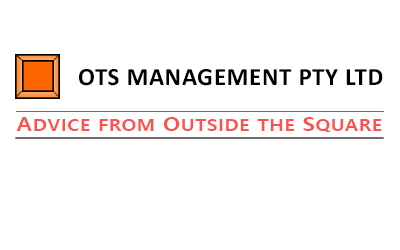Yes, you can take a holiday and make your business more valuable at the same time!
But before we look at how that happens, let's see if you agree that most small business owners struggle with their work-life balance.
You are working long hours, sometimes weekends, when you go on vacation you can't help feeling the guilt, your phone or tablet is always on and always calling for your attention even at all hours of the night.
Yet the reason you started your own business, apart from the passionate belief in what you are doing is...getting time to do what you want!
Where's the sense in that?
Ask yourself why you aren't able to find that "life" part of the balance. Do these reasons sound familiar?
- I need to really dedicate myself to this business to make enough money so that one day I can take that time off;
- I'm really busy because I can't afford to hire someone else to do the work;
- How this business works is all in my head so I can't leave;
- I'm ultimately responsible for the business' success;
- The more I expand the more there is to do;
- Only I can do it;
- There's just so much to do.
Think about those reasons just for a minute. They all come down to the fact that there seems to be a lot to do and you are the only one available or capable of doing it.
Let's unpack that statement. That statement assumes that:-
- There is a lot of work, more than in a "fair day's work"; and
- Only you can do it, all of it.
Then, let's turn around those assumptions into positive, solution-seeking questions:-
- How do I reduce the existing amount of work to a manageable yet profitable level?
- How can someone or something else do at least some of it?
This is where you start to understand how the ability to take some time away from your business can actually increase its value. If you were able to organise the work and the business so that it becomes a process; if you can make that process automatic and easy to learn; if you can make that process pay for itself by freeing up time to be more productive; then:
- The business will be worth more because you can show an investor or purchaser that the business makes money without you - that they will buy or invest in a business, the goodwill factor, not in the effort factor of you working hard;
- The business is worth more because you find your work-life balance, refresh yourself to find opportunities and be more productive with your time.
Well, if that's the conclusion from 10 minutes worth of thinking then why don't we spend a lot more time towards achieving it? If that work-life balance is what we all want as entrepreneurs and small business owners, and it helps us to make the business more valuable, then let's plan to get it.
Ultimately, the solution to reducing the amount of work and sharing the load is to eliminate unproductive work and to systematize your processes and procedures.
We seek some way to automate our business, and yet retain the sense of purpose and drive that we otherwise put into it from our passion and our vision. It will take some time - and concentrated effort - but it can be done.
The key lies in three mindsets:-
- We must be clear about our vision and be really good at making sure whoever joins our team understands what that vision really means in terms of direction, strategy, passion/motivation, and value;
- We need to be ruthless in examining everything that we do and question why we are doing it so that we can eliminate anything that is unnecessary; and
- We must be prepared to automate through technology, systems, and procedures.
Take the first point about clarity of vision.
I'm sure that when you started your business you didn't say "I'm starting my business so that I can earn an income". You may not have voiced it but you saw a gap that you thought you could be the best at filling, or you had a passion for something you were good at and wanted to make a life of it while earning an income from it, or you really felt good about helping customers solve their problem, or you liked your job but felt that you could be so much happier doing it your way instead of the boss' unimaginative way.
What started you off was a vision - a vision of what your life would be like, what the business would do and how it would grow to be different and better; a vision of how you would help people or solve problems.
If you haven't already done it, you need to write down that vision. What is your purpose in life and what is your business all about?
Then you really need to ask what the vision means in day to day activity. Does it mean always doing something in a certain way? Does it mean that every day you strive to check that a customer got the best from you? Does it mean that your team is empowered and happy? What values does that vision encompass? Are they core values about service, or to be the best at doing something, or to always inquire and continually improve?
Write down these examples of day to day behaviour that exemplifies your vision and write down the values that should measure day to day behaviour.
Then, everything that you do from here on - including your own behaviour - how you treat customers and suppliers, how you work with team members, how you do everything, must be in line with your vision and the clarification of what it means on a day to day basis.
Once you set standards, it should no longer matter if you are not present at work - those standards become the norm.
Once you are absolutely clear about your vision, start looking at everything you do.
Write down all your actions every day, and then group your actions into systems.
When you make a sale - what steps do you take from taking the order to sending it off? When you hire staff - what do you do on a step by step basis? When you make your product, or create your service, or teach at the gym, or write a report - what do you do from start to finish? When you keep your books; when you close the store at night; when you revise your website - what are the individual steps you take from start to finish?
This will take you a few weeks, possibly even a few months, to ensure that you have captured everything and that you have logically grouped them into "systems". You will end up with "sales systems", "purchasing systems", "customer service systems", "accounting systems" and so on.
Once you feel that you have captured everything, with your vision and value-driven behaviours top of mind, ask "why am I doing this particular process and why am I carrying out this particular step in this process?"
Ask, does this step or process or system help me achieve my vision or reinforce the day to day behaviours I should be reinforcing?
This is where you have to be ruthless and eliminate every single step that is unnecessary or that does not help you attain your vision. It doesn't matter if you keep a second copy of invoices because once every month you might need to look them up alphabetically rather than by invoice number. The 10 minutes it takes you to do that once a month does not make up for the 10 minutes and photocopy costs you spend every single day. If your customers mostly like to receive their purchases by next-day courier, don't spend 10 minutes' time every sale looking up three different types of delivery costs; send everything by next-day courier and price accordingly.
Most of us follow certain steps because "they've always been done that way" or "I might need to look this up one day".
Far better to eliminate the unnecessary and then do the little extra work when you actually have to as an exception to the rule.
Once you have ruthlessly eliminated unnecessary tasks (and saved yourself a load of time during the day) move towards automating the remaining tasks.
First, look to see if there is any software or app that can take over the manual task. You will be surprised once you search, that there is almost a solution for every system - the question is then cost versus benefit, and if you can find the right tool for the job at a price you can afford.
Even if you can automate only 2 or 3 tasks, that will already save you time that you can spend more productively.
Then, make sure you document the process in every system that you had previously studied.
Draw flowcharts, write up checklists and procedures. You will be surprised, even if it's just you doing it, how often we reinvent the wheel or forget the precise steps and take time to work them out again. Having a standard series of steps or process flow will again save you time during the day.
There is another huge advantage in having these processes written down. And this is where we start to lay the foundation for you to take your holiday.
Let's say you hire someone to take over the responsibility of one of your systems, say organising mailing lists. How much faster is it if you just handed over the flowchart and checklist? What happens if sometime in the future they leave and you have to replace them - how much time in retraining will you save?
Imagine if every member of your team had a copy of the vision (or your "rules" about how things should be done to live up to your standards) and a copy of the procedures of the systems they are responsible for. You no longer have to say "it's all in my head so I can't leave."
Finally, let's look at the objection that "you can't afford to hire help."
Perhaps you can't right now, but in getting your business organised, streamlined and process-driven, you will find that the time you spend is actually more productive and will lead to more profits because of that extra productivity.
So you can start small. Hire a Virtual Assistant first on an hourly basis, then hire casual helpers and then later, part-time staff. You don't have to hire full-time staff until you feel you are ready.
If you can put this into place, and I know you can - I've known businesses who have done this within 3 or 4 months, I have known others who have done it in 2 to 3 years - then you really would have designed and built a business in which you can take three months off!
So, change your mindset, get clarity of vision, eliminate unnecessary tasks, automate what tasks you can, document your systems, train staff to perform these tasks by following the systems.
Go on, try it and plan for that long holiday away when you can have the full confidence that everyone back home knows what they are doing!




